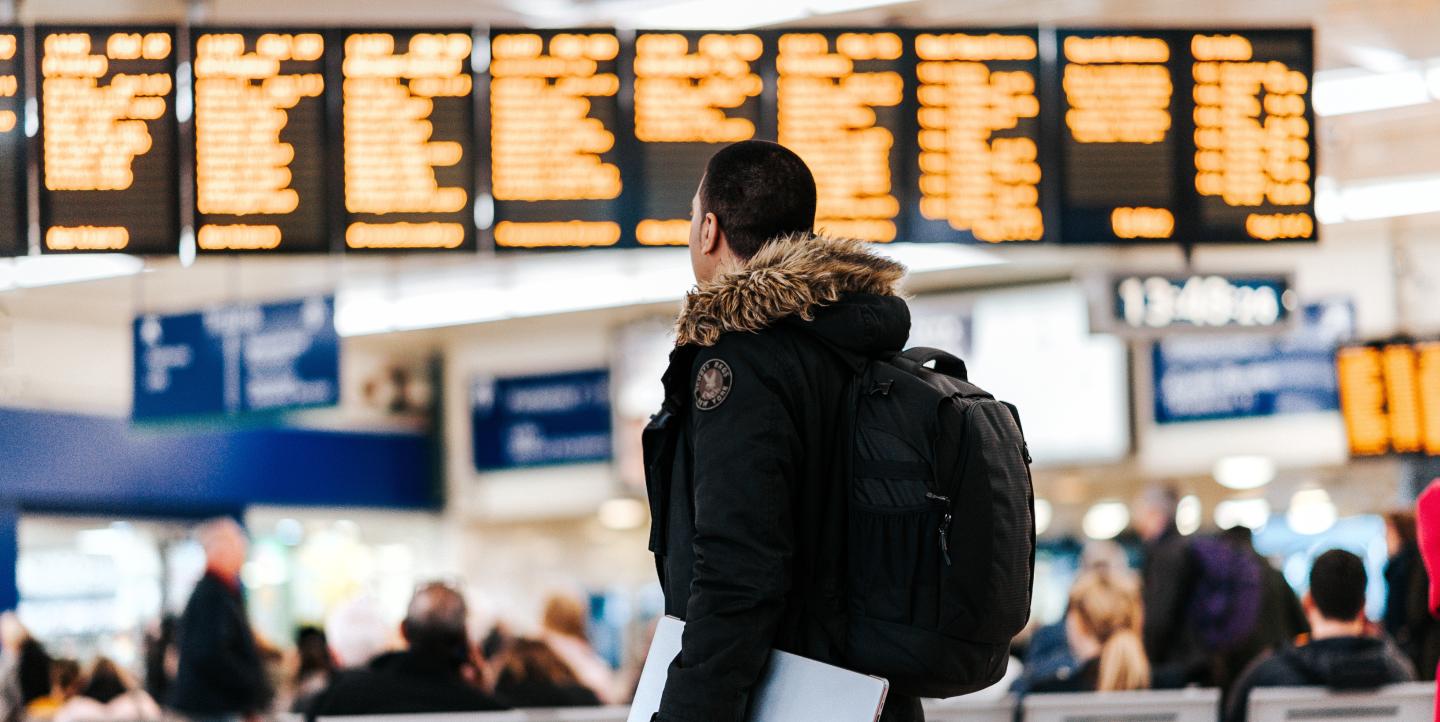There is a pattern of visas being refused for African journalists and students when they seek to travel abroad. Discrimination, a lack of respect, double standards, and excessive migration controls were among the contributing factors put forth by panelists during a recent French-language ICFJ Global Crisis Reporting Forum session.
Joining ICFJ Community Manager Kossi Balao to discuss the issues African journalists run into with visa applications to travel abroad were Virgile Ahissou, a multimedia journalist and former Agence France-Presse correspondent; Mathieu Piché, a professor at the Université du Québec à Trois-Rivières; and Michael Pauron, co-coordinator of the Afrique XXI editorial board.
Double standards
A variety of reasons are often provided when visas for journalists are denied, said Ahissou. These include claims that information provided by the visa applicant to justify their travel is incomplete. Even after receiving a visa, African journalists are subject to more passport control measures that can often be discriminatory. "These are tribulations that make us feel uncomfortable. As journalists, we often lack the respect we deserve," said Ahissou.
He highlighted how passport control for Africans at Western airports differs from the experience of individuals holding European or American passports. "We are subjected to endless checks," he said. "When an African applies for a visa, there is a presumption that they are seeking immigration and wanting to leave their own country. Suspicion accompanies the process."
African students also experience higher rates of visa rejections, noted Piché.
"It's a documented fact," he said. "As long as this injustice persists, we must keep raising these questions. The authorities have to provide explanations if there is a systemic issue at play." Piché added that some agencies in African countries assisting students with their visa applications use questionable methods which can also influence visa denials.
Students are faced with a paradoxical situation that is “absolutely incoherent,” continued Piché. Students, he explained, are initially required to demonstrate their intention to return to their home countries when applying for a visa, especially given the labor shortages in many of them. However, they may later be offered work permits after completing their studies in the countries to which they’ve traveled. This negatively impacts future applications from African students, leading to more rejected visa applications.
"There is obviously discrimination against African countries," he said, calling out the double standards experienced by African applicants when compared to their Western peers.
The visa business
The visa issues faced by African applicants has become a lucrative business, said Pauron. Using France as an example, he cited rising visa application and university enrollment fees as evidence.
"There is a clear intention on the part of France to base their selection process on the cost of the visa," said Pauron. "Even with the best of intentions, I have the impression that an African applicant will be automatically suspected of having a hidden agenda to stay permanently or harbor negative intentions regarding their immigration.”
It's also nearly impossible to appeal when French authorities reject a visa application, explained Pauron. The visa process is akin to a lottery, he said: "There is sometimes a certain lack of comprehension.”
French authorities must operate their visa process more transparently, especially when it comes to communicating the criteria for successful applications, said Pauron: "There is undoubtedly a need for improvement on the French side." He added that collective action by visa applicants could help bring about change.
Photo by Anete Lūsiņa on Unsplash.
This article was originally published on our French site. It was translated to English by Nourredine Bessadi.


